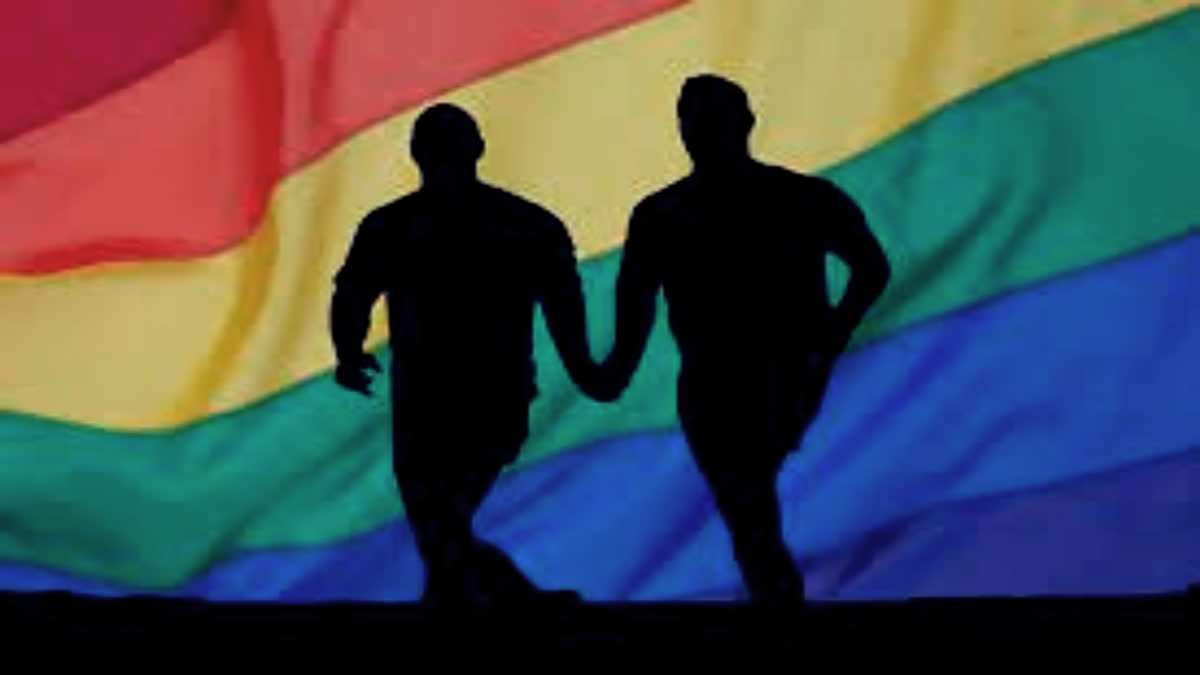New Delhi: The couple, both men who have been together for 15 years, sat in Bengaluru watching with bated breath as the Supreme Court in far away Delhi read out the judgment on same-sex marriages that would decide their future as a family unit with their two children.
But the legitimacy Rishi* and Aryan* (names changed) were looking for was not to be. A five-judge Constitution bench of the apex court refused to grant legal recognition to same-sex marriages. The bench also differed on applicability of adoption rules for queer couples while denying adoption rights to LGBTQIA+ couples.
The court's refusal to recognise our partnership has left an indelible scar, affecting our daily existence. It's incredibly painful," Aryan* told PTI over the phone. Both Rishi* and Aryan* adopted a son each as a single parent, one in 2016 and the other in 2022. "Our children know that we love each other deeply, but they're constantly reminded that our love isn't considered 'real' by the law. The emotional burden is unbearable and we see its effects on our kids every day," Aryan* said. Rishi* echoed his anguish.
"Our children deserve to grow up in a home with legally recognised parents. The fact that we can't adopt as a couple or even get married sends them the message that our family is different, and that's a heavy burden for children to bear." The decision sent ripples of despair through much of the LGBTQIA+ community, which has waited years for same-sex marriages to be recognised.
The poignant story of Rishi* and Aryan* is emblematic of the ongoing battle for equality and the profound personal and emotional toll it has on LGBTQIA+ individuals. This legal denial has far-reaching consequences for Rishi, Aryan, and families like theirs, as the inability to adopt as a couple places additional hurdles in the path to securing their family's rights. Many couples face the same predicament.
The lead petitioner in the case, Amburi Roy, had to move to Denmark to be legally married to her partner Aparna Saha in 2021. However, they are yet to jointly adopt a child. "If we did adopt a child, we would both be mothers at home, but one of us would have to be called Aunty' in public because we were not out yet. We learned that we could adopt as single parents but not together, which prevents us from fulfilling our dream of becoming parents and raising a child with all the love in our hearts, Berlin-based Amburi said.
In Gurugram, Rahul* and Amit* (names changed), who have been together for eight years and are raising a child, find themselves navigating a complex legal landscape, unable to provide their child the legal security that opposite-sex couples can. According to Adoption Regulations 2017, single parents can adopt a child. The regulation further states that single women can adopt a child of any gender, while single men cannot adopt a girl child.
"It's painful to imagine our child growing up in a world where our love isn't fully recognised, said Rahul*. We want our child to know that their family is just as valid as any other, but the lack of legal recognition can erode their sense of belonging, he said. Gender rights advocate Sandhya Honawar said news of the verdict was "heartbreaking".
"We had pinned high hopes on the law allowing LGBTQ people to marry and adopt. It seems like we cannot see any more dreams now. This is truly a huge setback. Along with legal recognition of marriage, rights related to succession and adoption of children are yet to find answers," Honawar said. Bharati Ali from NGO Haq: Centre for Child Rights argued that marital status or gender identity of a parent should not be an issue if he or she provides the child with love, care and nurturing.
"What if a single person adopts a child and subsequently enters into a non-heterosexual relationship with someone? Will the adoption be invalidated? Can the adoption be revoked?" Ali asked. However, some like Shubhankar Chakravorty, a gay man and Bengaluru-based consultant, saw the verdict as a "positive development" that will "bring LGBT+ lives and relationships to the mainstream".
"Currently, loving and accomplished people around India are being denied their well-earned rights because of the state's lethargy. This devalues and demoralises precious human capital. Today's ruling will help better contextualise the premise of marriage equality and fuel a long-term movement. "Hence, I see today's ruling as a positive development...and will hopefully inspire the LGBT+ population to do more to assert their identity," Shubhankar said.



